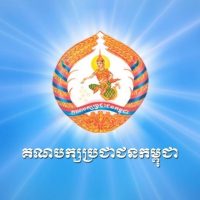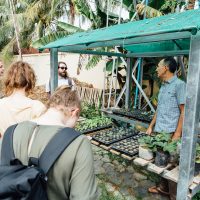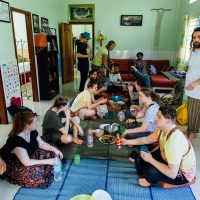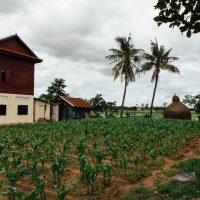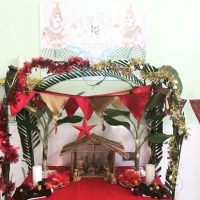but when her baby is born she forgets the anguish because of her joy that a child is born into the world. John 16:21
GRIFFITH GLEANINGS JUNE 2019
Cambodia’s birth rate is healthy. Cambodia has more than double Australia’s percentage population growth rate (and that is before you take out the migration rate of Australia that is more than half of Australia’s population growth). But hidden in statistics are real people, including those couples who cannot conceive. In many cultures still today infertility for a woman is a source of significant shame. Even for men in Cambodia, if their wife fails to conceive, the husband may be teased that he is ‘weaker than a chicken’. Medical options that assist in fertility is not an option for most. Last month in the village where we live, we welcomed into the world a baby that was of special significance; the parents had struggled for years to have a child. You may remember the story of Deb’s friend Mrs M it is with joy to share she has had a healthy baby girl. We both have visited her and her family a few times since to encourage her and them in this new season.
As Deb stares at her Khmer friend’s precious new baby, a wave of emotion comes up within her. Infertility can be one of the most painful seasons a woman can walk through. Additionally, one of Deb’s previous language nurturers (who now helps other team members with their language learning) shared recently that she is expecting a baby later this year. Deb had prayed with her for a couple of years that she would be enabled to get pregnant. A joy to celebrate new life and all it represents. As we sit alongside of our Khmer friends in their many seasons of life may God’s deep love for them be unpacked and revealed.
Do you remember the first time you saw a significant iconic place in your country, maybe Ayres Rock, Sydney Harbour, or where ever that noteworthy place is in your country of birth? A day outing always brings excitement among our Khmer friends. Two of our visiting friends from Blackwood Hills, Adelaide, joined us as we piled into two 14-seater vans with our Khmer friends of over fifty people for a day trip last month. This excursion brought excited anticipation as all the family was together visiting some iconic places most of them had never been including a local mountain where the water is considered by some Khmer people to have healing properties, Mt Koulen ភ្នំគូលែន and to the structure represented on Cambodia’s flag, Angkor Wat អង្គរវត្ត We shared their eagerness of going somewhere together, conversations, life stories, food, activities, photos, swimming lessons (many Khmer do not know how to swim) and so much more. Shared experiences like these are full and exhausting but they are immensely rewarding and enrich relationships as we share seasons of life with our Khmer friends and their families. |




